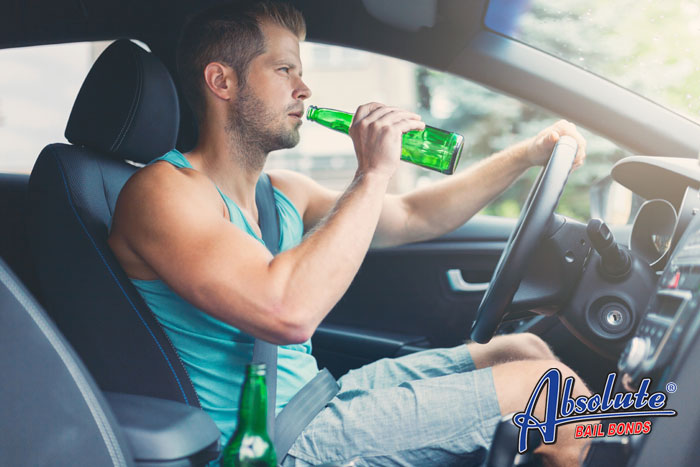
4 California Bike Laws you Probably Don’t Know About
Do you spend a lot of time biking in California? If so, there are some California bike laws you’re probably not familiar with.
Bikes and Crosswalks
Did you know that as a cyclist, you’re not supposed to stop your bike in the middle of a crosswalk? When you’re on a bike, you need to treat it the exact same way you would if you driving a car. Instead of pulling into the crosswalk, you’re supposed to stop at it. This gives pedestrians the opportunity and space needed to use the crosswalk.
Prep Your Bike For Nighttime Rides
If you’re cycling at any time between dusk and full-on morning sunlight, you need to have your bike properly equipped with enough equipment that motorists can easily see your bike. It’s not enough to simply rely on the reflectors the bike came with You should also have a red solid or flashing light attached to the back of your bike that can be easily seen from a distance of 500 feet away. On the front of your bike, you need to attach a white light that not only helps with your visibility but can also be seen from 500 feet away.
Ideally, you should wear clothing that has reflectors on it as well.
Keep One Ear Open
You see it all the time, cyclists cruising along with headphones in their ears, taking advantage of their ride to listen to audiobooks, songs, and podcasts. What you probably don’t know is that you can’t legally have two ears full of earbuds or be covered by a headphone while you’re cycling. CVC 27400 states that you must leave one ear uncovered while you’re riding your bike.
Stay Away from that Oversized Bike
If you think it’s okay to send your child out on the bike they haven’t quite grown into, or you’re tempted to purchase a massive bike you’ve been admiring each time you visit your favorite bike shop, you need to think again. California’s bike laws prohibit you from operating an oversized bicycle on public roads.
CVC 21201(c) states that, no person shall operate upon a highway a bicycle that is of a size that prevents the operator from safely stopping the bicycle, supporting it in an upright position with at least one foot on the ground, and restarting it safely.
Were you familiar with these bike laws?

You’ve Been Arrested for DUI… Again
Getting arrested and charged for DUI once in California is terrifying and life-altering. The second time you’re arrested for the same thing is even worse.
Like many states, California lawmakers have decided that to take a hard stance on drunk drivers. One of the ways they’ve done this is by creating laws that make a second (and each additional offense) significantly worse than the first. The reason for this is because while a single DUI could be the result of a bad judgment and an honest mistake, additional arrests indicate that you have a habit of driving while under the influence and a menace to society.
DUIs are addressed in California Vehicle Code Section 23152. The second time you’re convicted of a DUI in California, the result will include losing your ability to drive, fines, mandatory enrollment in substance abuse programs, and jail time.
When you’re convicted of a second DUI in California, you will be required to spend at least 96 hours in the county jail. That’s the minimum amount of jail time connected to a second DUI. The maximum amount of time you can serve is 12 months.
You should expect to pay a higher fine than you did for the first offense. Typically, the fine for a second DUI is between $390 and $1,000, but that might not be all you’ll have to pay. Most courts add penalty assessments to the DUI fine. These assessments can multiply the fine to five times the anticipated amount. In some situations, the judge will allow you to choose to extend the amount of time you serve in jail or do a great deal of community service in exchange for paying the fine.
Since January 1, 2019, a guilty conviction of a second DUI in California requires that the judge order an ignition interlock device be attached to your vehicle. This only happens if the two convictions are less than 10 years apart.
The second DUI means you’ll lose your driving privileges. The good news is that the loss of your license probably won’t be permanent. In California, the current license suspension for a second DUI is a 1-year suspension (administrative per se) or a 2-year suspension if you are convicted.
It’s worth noting that in some situations, the judge will grant you a restricted license. This doesn’t mean you’ll be allowed to drive wherever you want. By if you’re able to present a compelling case to the judge, they’ll allow you to drive to work and to manage things like transporting your children. If you’re caught driving to places that aren’t specified in the paperwork connected to your suspended license or you’re driving at a time when you’re not supposed to, the restricted driving privileges will be taken away.
The only way you’ll be granted a restricted license is if you didn’t refuse to take a blood or urine test when you were originally arrested for the second DUI.
In addition to dealing with the actual criminal consequences of a second DUI, if you damaged property or injured/killed someone while driving drunk, it’s likely you’ll also find yourself engaged in a civil case as well.
The best way to avoid all of these consequences is making sure you never get behind the wheel after you’ve been drinking or using drugs.

Oops, I Opened my Neighbor’s Mail!!
The postal service isn’t infallible. They’re prone to making human mistakes. One of the most common mistakes the postal service does is occasionally putting your neighbor’s mail in your mailbox.
Most of us don’t really look at the mail before we open it. Since it’s in our mailbox, we automatically assume it’s for us. As a result, occasionally we open a piece of mail that belongs to our neighbor.
This can instantly lead to a sense of panic because most of us know that opening other people’s mail is a federal offense.
If you’ve accidentally opened a piece of mail that isn’t yours, the first thing you need to do is take a deep breath and relax. Unfortunately, these things happen.
The best way to deal with the situation is to return the mail to the envelope, seal it with a piece of tape, and let your neighbor know what happened. If you don’t see your neighbor, either slide the mail under their front door with a note of explanation or return the mail to the post office.
You want to take a proactive stance on the situation. The quicker you are to admit to the mistake, the less likely your neighbor will be to press charges.
If you got as far as reading whatever was sent to your neighbor, you don’t want to discuss the contents with anyone. Not with your neighbor (unless they bring it up,) not your spouse, and not your friends. Talking about the mail you accidentally opened could be considered an invasion of privacy and may cause your neighbor to consider filing charges against you.
The issue of mail theft is dealt covered by PC 530.5(E). In California, opening someone’s mail is a misdemeanor offense. A guilty conviction could result in being sentenced to a single year in jail. The good news is that to secure a conviction, the prosecution has to prove that you knowingly accepted the mail (or took it out of someone’s mailbox) and opened it. That’s why it’s so important to admit what you’ve done and alert both the post office and the actual owner of the mail to the situation.

